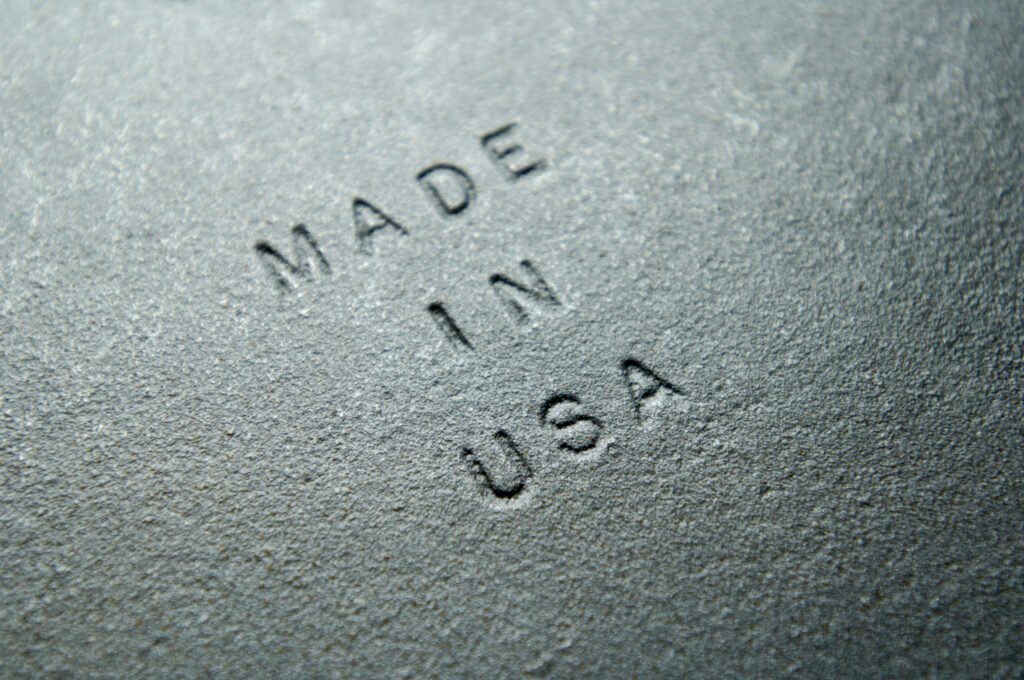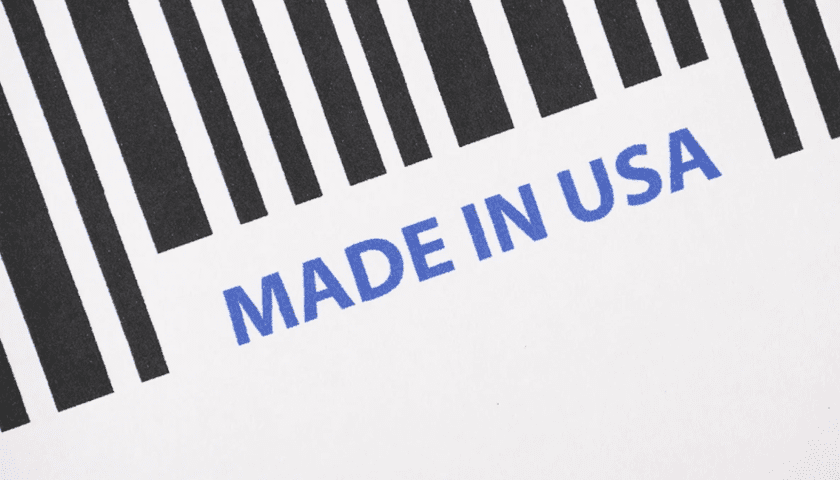When you see the label “Made in USA” on a product, it often signals quality, trust, and support for American jobs. But what if that label is a lie? That’s exactly what the Federal Trade Commission (FTC) is cracking down on. In recent months, the agency has significantly ramped up its efforts to penalize businesses—both manufacturers and retailers—for falsely claiming that their products are made in the United States.
The FTC Made in USA enforcement campaign is a major push to protect consumers and honest businesses. Companies found guilty of misleading labels now face heavy fines, legal actions, and reputation damage. This article breaks down the FTC’s new enforcement strategy, the businesses involved, and what this means for consumers and the retail industry.
What Is the FTC Made in USA Rule?
The FTC Made in USA Rule, finalized in August 2021, makes it illegal for companies to falsely advertise that a product is made in the USA unless:
- All significant processing occurs in the United States.
- All or nearly all ingredients or components are of U.S. origin.
- The product’s final assembly or manufacturing happens in the U.S.
If a company cannot meet these criteria, they cannot claim or even imply their product is “Made in USA” without clear qualifications.
Why the FTC Is Cracking Down Now
There’s been growing concern about deceptive practices. In a globalized supply chain, many businesses import materials or entire products but still market them as American-made.

Here’s why the FTC is taking a tougher stance now:
- Protecting Consumers: Consumers often pay more for U.S.-made goods, expecting better quality and ethics.
- Level Playing Field: Honest American manufacturers face unfair competition from those using misleading labels.
- National Pride: “Made in USA” has value. Misuse undermines public trust.
High-Profile Cases and Penalties
1. Chemence, Inc. – A Repeat Offender
The FTC issued a $1.2 million fine to Chemence, Inc., a glue and adhesive manufacturer, for claiming its products were “Made in USA” while using imported chemicals and materials. This was the second time the company was penalized.
2. Lions Not Sheep Apparel Brand
In 2022, the FTC fined Lions Not Sheep $211,335 for removing foreign origin tags and replacing them with “Made in USA” labels—even though their apparel was sourced from China and other countries.
3. Patriot Puck (Hockey Products)
Another example is Patriot Puck, which falsely labeled its hockey pucks as American-made. The FTC issued a cease and desist order after discovering they were imported from China.
4. Products from Amazon and eBay Retailers
The FTC is also targeting online retailers. Several sellers on Amazon and eBay received warnings and fines for deceptive “Made in USA” labels on products that originated elsewhere.
What Retailers Need to Know
If you’re a retailer, not just a manufacturer, you’re not exempt. The FTC holds retailers responsible if they:
- Sell falsely labeled goods knowingly.
- Promote or advertise foreign-made goods as domestic without verifying claims.
- Import and repackage products under misleading origin labels.
Retailer Penalties May Include:
- Fines up to $43,280 per violation.
- Refunds to consumers.
- Mandatory public disclosure of the violation.
- Cease and desist orders.
How the FTC Is Enforcing the Rule
The FTC uses a combination of:
- Routine inspections of websites and packaging.
- Consumer complaints and tips.
- Surprise audits and undercover purchases.
- Partnerships with Customs and Border Protection to catch mislabeled imports.
They are also working on increasing consumer awareness, encouraging people to report suspicious labeling.
Impact on the Retail and E-Commerce Sector
1. Stricter Labeling Practices
Retailers must now double-check their suppliers’ claims. Many are demanding country-of-origin certificates from manufacturers before advertising products as American-made.
2. Increased Legal Costs
Companies are hiring legal experts to review marketing practices. One wrong word like “crafted in America” can attract unwanted attention from regulators.
3. E-commerce Accountability
Online sellers are being hit hardest. Amazon and Shopify have started flagging or removing listings that make unverified origin claims.
4. Reputation Risks
Brands caught faking U.S. origin claims suffer brand trust issues. Social media backlash can be harsh and swift.
What Consumers Should Watch For

As a consumer, here’s how you can avoid being misled:
- Read Labels Carefully: Look for specific language like “Assembled in USA with foreign components.”
- Check the Fine Print: True “Made in USA” claims will often be backed by details on the label or website.
- Report Suspicious Products: If something seems off, you can file a complaint directly on the FTC website.
FTC Guidelines for Making Valid Claims
To comply with the FTC Made in USA enforcement rule, businesses should follow these guidelines:
✅ Do:
- Use the claim only if the product is entirely or almost entirely made in the USA.
- Be transparent—include details about imported components.
- Use qualified claims like “Made in USA with imported materials” if applicable.
❌ Don’t:
- Use vague terms like “American Quality” without proof.
- Use the U.S. flag image to imply origin.
- Repackage imported goods and label them as American-made.
Industry Response and Future Outlook
Industry groups have had mixed reactions. While many support the enforcement, some smaller businesses argue the rules are too strict and hard to comply with in a global supply chain.
Still, the FTC remains firm: “If you use the label, you must earn it,” says FTC Chair Lina Khan.
Experts expect:
- More investigations in 2025 and beyond.
- New technologies to trace supply chains and verify claims.
- Retailers implementing AI-powered compliance tools to check origin claims in listings.
Conclusion: Honesty Is the Best Policy
The FTC Made in USA enforcement is not just a legal measure—it’s about consumer trust. Americans want to support domestic manufacturing, but only when the label is genuine.
For retailers and manufacturers, the message is clear: be honest, be transparent, and double-check your claims. Getting caught is expensive—not just in dollars, but in reputation.
Read Next – Recession Risk Due to Inflation: Banks Stay Profitable but Raise Concerns






